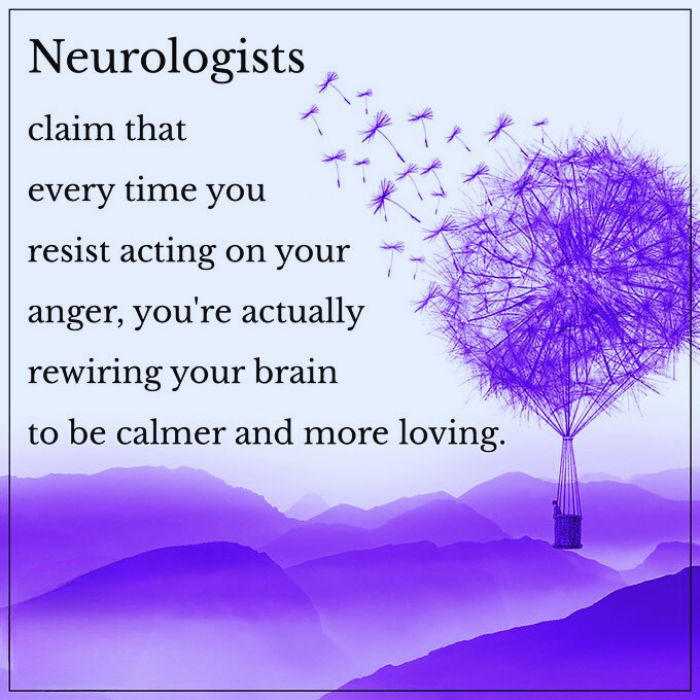
Anger, a natural human emotion, can be both empowering and destructive. However, when we consciously choose to resist acting on it, we’re doing more than just exhibiting self-control—we’re actively rewiring our brains. Neurologists have discovered that this resistance leads to positive changes in our neural pathways. Each time we refrain from reacting impulsively to anger, connections associated with calmness and compassion strengthen. Over time, this creates a more peaceful disposition, making it easier to handle future provocations with grace.
The Power of Neuroplasticity
Neuroplasticity—the brain’s remarkable ability to reorganize itself—is the mechanism behind this transformation. For decades, scientists believed that the brain’s structure was fixed after childhood. Recent research has shattered this notion, revealing that our brains remain malleable throughout life, continuously forming new neural connections based on our experiences and actions.
When we consistently choose positive responses over angry reactions, we reinforce certain neural pathways while weakening others. This gradual shift changes our default responses from aggression to understanding and compassion.
Neuroplasticity extends beyond emotional regulation:
- Recovery from brain injuries: When one part of the brain is damaged, another part can sometimes assume the lost function. Stroke patients often demonstrate this as undamaged areas compensate for injured regions, helping restore motor skills and speech.
- Mental health treatment: Therapies like cognitive-behavioral therapy (CBT) harness neuroplasticity to treat depression and anxiety by actively reshaping thought patterns, effectively “rewiring” the brain for improved mental health.
- Rehabilitation techniques: Specialized programs for brain injury patients function like “mental weightlifting,” combining physical movements with cognitive exercises. These targeted activities stimulate the growth of new neurons in areas where healing is needed.
Understanding the Brain’s Building Blocks
The foundation of neuroplasticity lies in the brain’s fundamental components:
Neurons: Information Messengers
Neurons transmit information throughout the nervous system through three main parts:
- Cell Body (Soma): The central part containing the nucleus, integrating incoming signals and generating outgoing ones
- Dendrites: Tree-like structures extending from the cell body that receive information from other neurons
- Axon: A long projection conducting electrical impulses away from the cell body to other neurons or structures
Synapses: Communication Junctions
Synapses are critical connection points between neurons that determine information flow through neural networks:
- Chemical Synapses: Most common type, where neurotransmitters release from an axon terminal, cross the synaptic gap, and bind to receptors on the receiving neuron
- Electrical Synapses: Less common connections that allow electrical signals to pass directly between neurons—faster but less adaptable than chemical synapses
Neurotransmitters: Chemical Messengers
These chemicals transmit signals across synapses and can be either excitatory (stimulating) or inhibitory (reducing activity). Common neurotransmitters include dopamine, serotonin, and glutamate, each playing distinctive roles in mood regulation, reward processing, and memory formation.
Cultivating Calmness in Daily Life
With this understanding of how our brains function, we can intentionally cultivate responses that promote positive neural changes. While resisting anger in challenging situations requires effort, the long-term benefits are profound. Through practices like mindfulness and meditation, we train our brains to default to compassionate responses.
This intentional rewiring not only enhances our mental well-being but also improves our relationships and interactions. Each time we choose understanding over anger, we strengthen neural pathways associated with love and compassion, setting ourselves on a path toward a more harmonious life.
Daily Affirmation
“Today, I choose to respond with love and understanding, knowing that each positive choice reshapes my brain for the better.”
Wisdom to Remember
“For every minute you remain angry, you give up sixty seconds of peace of mind.” — Ralph Waldo Emerson
“Holding onto anger is like drinking poison and expecting the other person to die.” — Buddha
“Anger does not solve problems – anger only makes things worse. I go by the old saying, ‘Don’t make important decisions when you’re angry.'” — Lionel Sosa
“The greatest remedy for anger is delay.” — Seneca
“When you are offended at any man’s fault, turn to yourself and study your own failings. Then you will forget your anger.” — Epictetus
Write Your Prayer